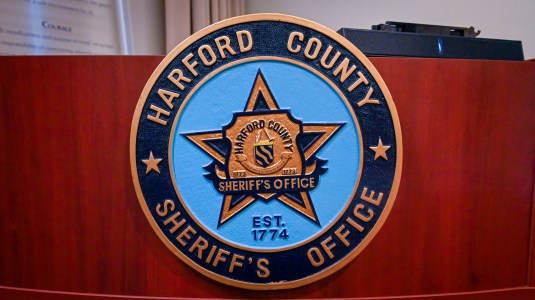
It could be one of the easiest commutes in Baltimore, renting an apartment in the renovated Fidelity & Deposit Building downtown and working in an office at One Charles Center just steps to the south.
That at least is a scenario envisioned by Patrick Grace, who now owns both buildings. Already renovating the 1890s-era financial building at 210 N. Charles St. into apartments, Grace and a business partner closed Friday on a $4 million purchase of One Charles Center.
Both buildings were owned by the late Peter Angelos, the former owner of the Orioles and a legal titan. One Charles Center, a modernist landmark that sparked Baltimore’s 1960s downtown renaissance, had been marketed for its potential for conversion to apartments, but Grace said he plans to keep it as an office building.
“We got it so much below its value,” Grace said Monday, speaking by phone from the building as he showed it to prospective tenants. “It wouldn’t take that much to get it to profitability.”
The 23-story glass and aluminum tower, designed by the pioneering modernist architect Ludwig Mies van der Rohe, last had been assessed at close to $10 million.
Grace, who owns the Fulton-based company Trademark Investments, bought the building with Prabhakar Thangarajah, a Virginia-based investor and owner of information technology companies, with whom he also partnered on the Fidelity building.
Angelos paid $6 million in 1996 for One Charles Center. As he became incapacitated by illness and his family members fell into a legal battle over his assets, they put the skyscraper on the market in August 2022.
The lawsuits between Angelos family members settled last year and they have sold much of his holdings, most prominently the Orioles to Baltimore native and private equity billionaire David Rubenstein. Angelos, 94, died in March.
After One Charles Center lingered on the market, it was put up for auction in April, which concluded in a winning bid of $4.4 million. Grace said he found out about a month ago that the sale never was finalized and that the building was again available.
“This occurs rarely, where we have the initial buyer default,” said Bradd Caplan, senior sales director for Ten-X, which conducted the auction. “Things can happen.”
Caplan said the auction winner, whom he declined to identify, signed a contract, but failed to put up a required 10% deposit. JLL, the real estate broker for the building, was able to identify “backup” buyers, Thangarajah and Grace, who with transaction fees paid a total of $4.1 million, Caplan said.
Like other cities, Baltimore’s downtown has been in flux amid a changing workplace landscape. Many employees continue to work from home at least part of the workweek as they did during the coronavirus pandemic, leaving some buildings empty or selling for much lower than previous prices.
“We’re not seeing that just in Baltimore,” said Caplan, whose company has handled sales of other properties in the central business district, including the Holiday Inn Inner Harbor and Hotel Monaco.
“I think it’s market conditions, where interest rates are,” he said. “There are a lot of vacancies, companies are reducing their footprint for how much space they need — it’s a combination of these things.”
Some, though, say there are signs that downtown may start repopulating, with residents living in former office buildings that have been converted into apartments or with workers trickling back at least on hybrid schedules.
“People are getting more at ease being around other people,” said Kim Clark, executive vice president of the Baltimore Development Corp., the city’s economic development agency. “People are getting more comfortable being downtown.”
Clark points to the crowds that flock to watch the surging Orioles at Camden Yards or catch a concert at the renovated CFG Arena. While she said she doubts there will ever be a large-scale return to working in a downtown office five days a week, those she’s spoken to in commercial real estate feel “a more positive vibe than they have in a while.
“There are still people that want to come into the office and want to be with colleagues and collaborate in person,” she said.
Tenants of One Charles Center include Angelos’ law firm, renowned for representing victims of asbestos and tobacco, which was bought earlier this year by several of its senior attorneys, the Center for Architecture and Design, and other companies.
It is only about a third occupied, but Grace said he believes he can begin filling it in the next several years.
“It’s iconic,” he said of the building.
Leonard J. Grossman, whose law firm Goodman, Meagher & Enoch has a long-term lease at One Charles Center, said he has enjoyed the building’s views of the city and its proximity to the courthouses. Now he’d just like a little more company.
“I would hope that there would be some effort to increase occupancy,” he said, “because it would benefit the surrounding area.”



